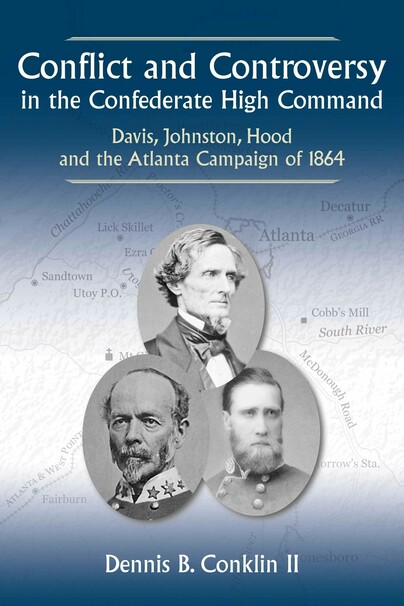Conflict and Controversy in the Confederate High Command (Hardback)
Davis, Johnston, Hood and the Atlanta Campaign of 1864
You'll be £25.99 closer to your next £10.00 credit when you purchase Conflict and Controversy in the Confederate High Command. What's this?
+£4.99 UK Delivery or free UK delivery if order is over £40
(click here for international delivery rates)
Order within the next 9 hours, 36 minutes to get your order processed the next working day!
Need a currency converter? Check XE.com for live rates
(click here for international delivery rates)
Order within the next 9 hours, 36 minutes to get your order processed the next working day!
Need a currency converter? Check XE.com for live rates
The Atlanta Campaign of 1864 was critical in determining the outcome of the American Civil War and helped reelect Abraham Lincoln that November, assuring eventual victory. The largely overlooked campaign in Georgia has seen a resurgence of interest in the past decade. Dennis B. Conklin adds to the growing literature with Conflict and Controversy in the Confederate High Command: Davis, Johnston, Hood and the Atlanta Campaign of 1864.
Conklin’s account, which originally appeared as a Ph.D. dissertation, offers a look at the dysfunctional relationships that permeated upper echelon leadership and helped lead to the defeat of the Army of Tennessee and the loss of the important logistical rail city. Crucial flaws in Jefferson Davis’s leadership in general, he explains, and the mutual distrust between the Southern president and Joseph E. Johnston (commander of the Army of Tennessee), had them working at cross purposes. As the campaign progressed and large swaths of territory were lost to Gen. William T. Sherman’s advancing armies, the ongoing hostile relationship between Davis, Johnston, corps commander John Bell Hood, and Georgia’s Governor Joseph Brown intensified.
Davis’s initial uneasiness with Johnston at the helm was part of the reason he elevated Hood to lead an infantry corps in the primary Western army before the campaign opened. Hood, who matured as a tactical commander in the Army of Northern Virginia under the aggressive Robert E. Lee, grew increasingly frustrated by Johnston’s withdrawals, leading to what Conklin believes was their inevitable clash at Cassville—a critical dispute fueled by inconsistent maps and conflicting battlefield ideologies. The resultant letters to and from key players in Richmond did nothing to increase Davis’s faith in Johnston’s leadership and contributed to Hood’s eventual elevation to command of the army.
Conflict and Controversy in the Confederate High Command is a fascinating fast-paced study on the politics of command, human nature, and the stress of war, and how it all combined to influence the outcome of the Civil War’s most important campaign.
Other titles in Savas Beatie...















